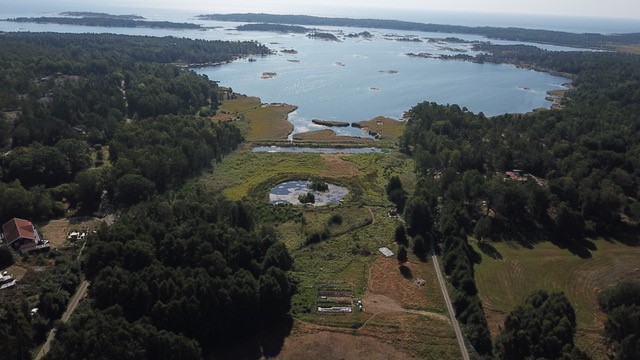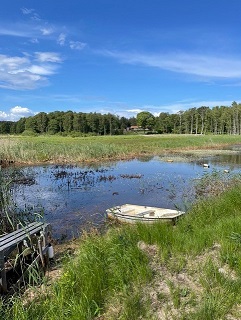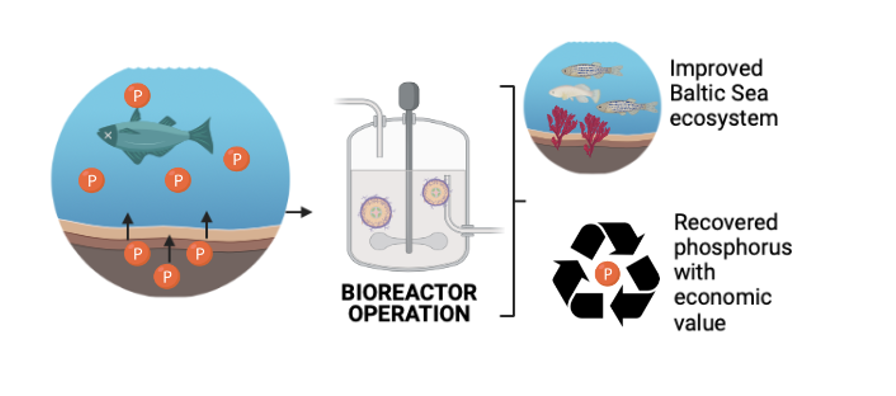Engineering strategy for a sustainable Baltic Sea

Describe the problem your research seeks out to solve

Phosphorus, as an essential element for the growth of all living organisms, is finitely available to the European Union (EU), with more than 90% of fossil phosphate demand covered by imports. Meanwhile, excess phosphorus release increases eutrophication risk in marine ecosystems including the Baltic Sea. According to the data, the amount of nutrients and the deposition of organic matter in the Baltic Sea have increased considerably since the beginning of the 20th century.
Describe the solution
To maintain a healthy Baltic Sea environment, our project consists of two parts. Firstly, we applied e-monitoring systems for improving the stormwater management around the Baltic Sea. A constructed wetland system on the island of Utö was chosen as a study site. The status of nutrients/hazardous substances inputs and water quality was monitored over a longer period. Another part of our project is designed for developing an innovative bioengineering approach for phosphorus recovery from the Baltic Sea, exploring potential biological mechanisms and investigating strategies of long-term reactor operation for maximum phosphorus recovery.

Describe the results of the new findings and its importance for society
The experience and data collected from the Utö wetland systems are applicable for further improvement of the wetland management. It helps to ensure the pollution treatment efficiency, manage water runoff and capture stormwater pollutants and thereby reducing damage to the environment. The results from phosphorus recovery batch reactors disclose underlying biological mechanisms of phosphorus release and contribute to developing strategies for increasing phosphorus release capacity.
How can your research be used? What is needed to implement it on the market?
Stormwater monitoring provides detailed information about Utö wetland, which is beneficial for evaluating the pollution treatment efficiency and adjusting the management strategies timely. By developing bioengineering approaches for phosphorus recovery from the Baltic Sea we have also presented an innovative way to relieve the burden of phosphate rocks shortage in Europe and implement remediation of the Baltic Sea simultaneously. Overall, our project is compliant with the framework of sustainable development; current results obtained from our study can provide useful information for developing strategies for promoting ecological status of the Baltic Sea environment.
Collaboration with different stakeholders such as municipalities, landowners and research institutions can improve successful implementation of the strategies on the market.
Have you collaborated with others?
Yes, Baltic Tech Water Center established a crucial platform for conservation of the ecosystem for the Baltic Sea. Collaboration with the center provides helpful technical guidance and sampling support.
